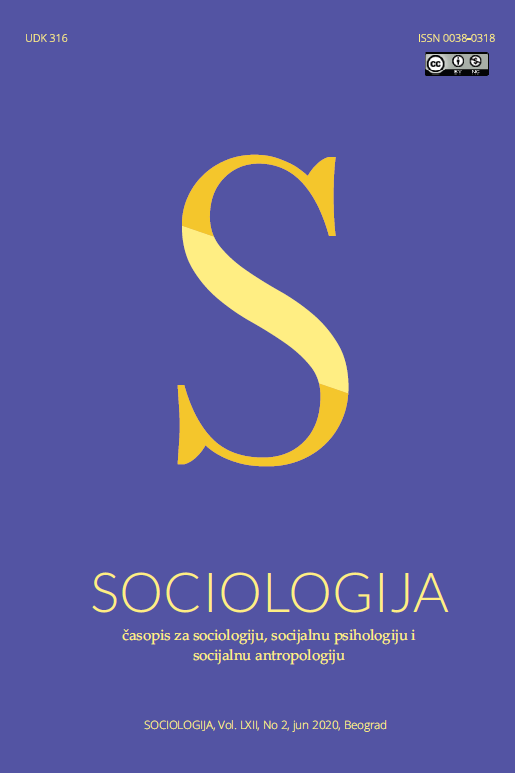Implikacije nostalgije u nemačkoj modernoj sociologiji
The Implications of Nostalgia in German Modern Sociology
Author(s): Ana PetrovSubject(s): Social Sciences, Sociology, Social Theory
Published by: Sociološko naučno društvo Srbije
Keywords: nostalgia; German modern sociology; Ferdinand Tönnies; Max Weber; Georg Simmel
Summary/Abstract: In this article, I deal with nostalgia as an implicit category in the19th-century German sociological discourses. I draw on the approaches that argue that sociology can be seen as a nostalgic social science since the sociologists’ discourses were focused on the issues of causes, characteristics, and consequences of the modern age for individuals and society. Trying to explicate modern society, usually by comparing it to the premodern forms of social order, modern sociologists shaped dichotomous categories that were used for the definition of basic sociological concepts, one of the typical ones being the dichotomy between modern society and traditional communities. I here argue that modern sociologists constructed their theories in relation to the idea of a lack or loss, i.e. in relation to the question of what the modern society left behind during its growth: community, spirit or freedom.An alternative, a solution, or simply a utopian object for making comparison arefound exactly in the object that is lost – in the nostalgic reflection on those aspectsof humanity that were no longer possible in the modern age. Hence, I argue thatmodern sociology can be defined as a certain discourse on social loss. This will be elaborated on the examples of theories of Ferdinand Tönnies, Max Weber, and Georg Simmel.
Journal: Sociologija
- Issue Year: 62/2020
- Issue No: 2
- Page Range: 217-236
- Page Count: 20
- Language: Serbian

